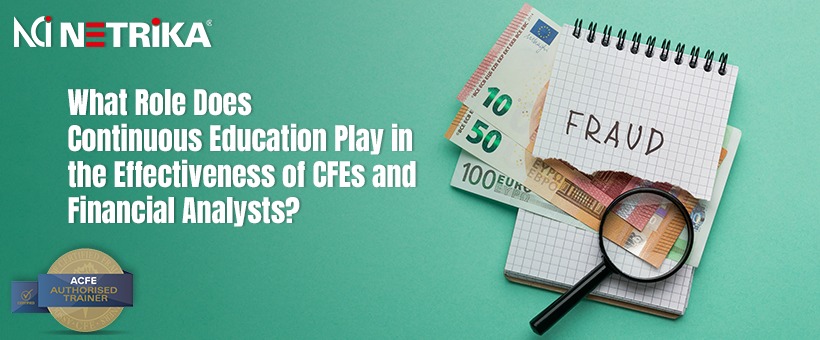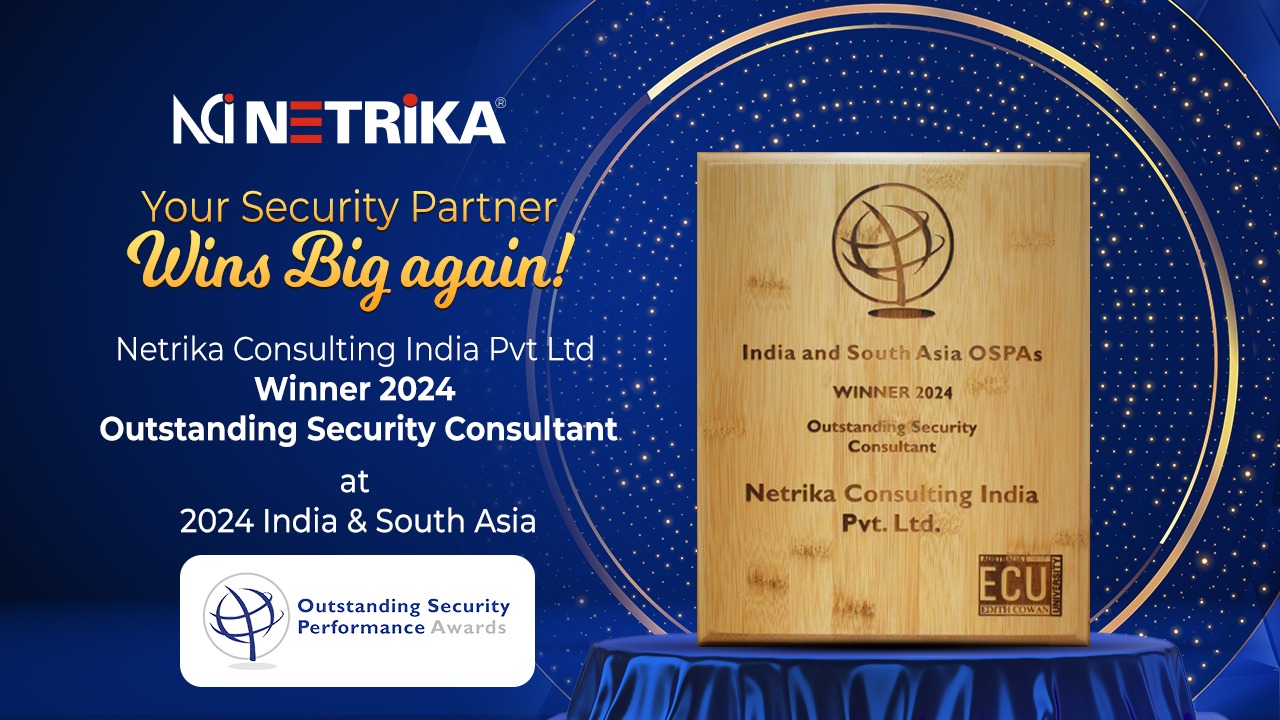News & Events
What Role Does Continuous Education Play in the Effectiveness of CFEs and Financial Analysts?
- March 21, 2024
- Posted by: marketing@netrika.com
- Category: Blogs

Certified fraud examiners and financial analysts are both the frontline protectors of any organization’s financial integrity and credibility. Their role in any financial institution is not limited to detecting fraud and implementing fraud prevention strategies but also extends to continuously upskilling themselves to stay abreast with the latest trends in the evolving fraud landscape.
Continuous education plays a pivotal role in enabling financial analysts and CFEs to stay updated with the technological advances that can be leveraged to make their role even more effective in organizations. Moreover, continuous learning through training sessions, relevant events, seminars, or meeting like-minded people helps them gain insights into the industry-specific challenges and new fraud strategies, thus allowing them to adapt to novel approaches.
Here is how continuous education improves the effectiveness of CFEs and financial analysts
- Improved Skill and Knowledge: The financial sector is the most vulnerable to threats, and with the evolving nature of risks that loom over organizations. To reason with this, professionals with upgraded skills and knowledge are more likely to prove themselves as a valuable asset than the ones using age-old knowledge. This is why financial analysts and certified fraud examiners are required to continuously upskill themselves through seminars or relevant courses and real-life case studies, so they are better equipped to deal with uncertainties.
- Fostering Professional Development: Continuous education empowers financial analysts and certified fraud examiners to leverage the latest trends, tools, and technologies and deliver high-quality services. This not only demonstrates their commitment to excellence, ethical behavior, and compliance with regulations but also helps in their professional development. Through the upgraded skills, they contribute to the overall security posture of the organization, making them highly valuable and in demand across industry verticals.
- Promoting Ethical Conduct: Continuous education is crucial not just for sustainable growth but also for promoting ethical conduct amongst the employees of an organization. The financial integrity of any company is reliant mostly on its internal control and its employees. However, the internal controls of the organization can be secured, maintained, and improved if the employees follow their code of conduct to heart. Financial analysts and certified fraud examiners ensure that their continuous upskilling is put to good use through regular training sessions within the organization, thus enhancing their operational effectiveness.
- Facilitating Networking and Collaboration: As continuous learning involves attending seminars, global events, and training sessions, both financial analysts and certified fraud examiners find a great opportunity to network with like-minded people in the financial community. By engaging with industry experts and thought leaders, financial analysts and certified fraud examiners exchange their experiences, best practices, latest trends, real-life case studies, and insights which ultimately leads to improved effectiveness in work.

